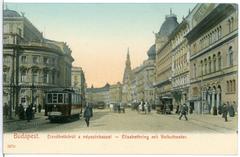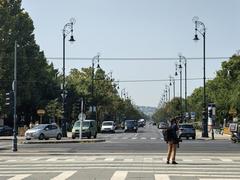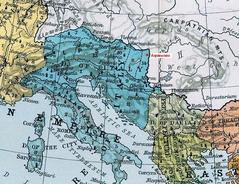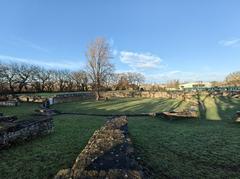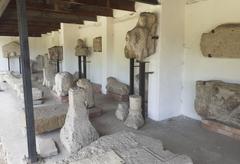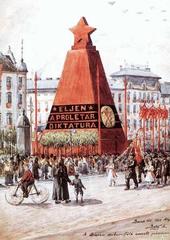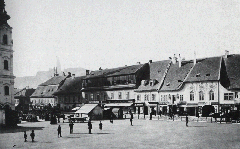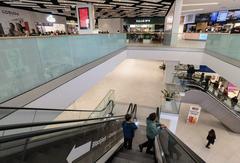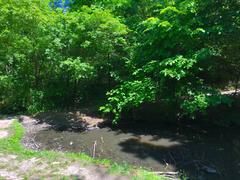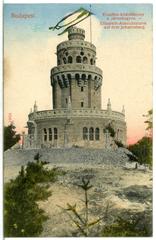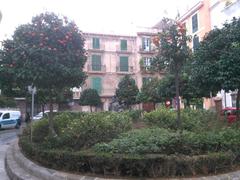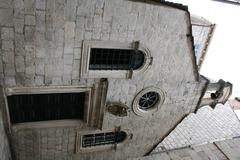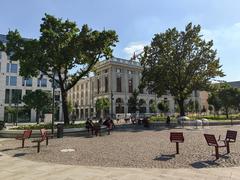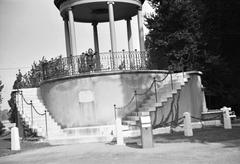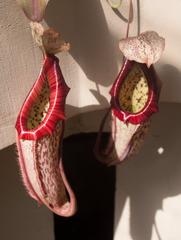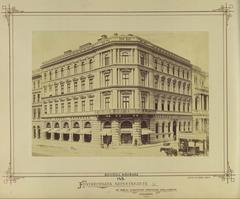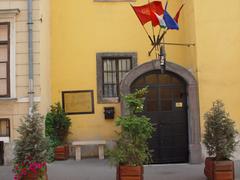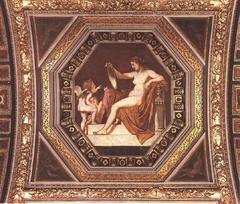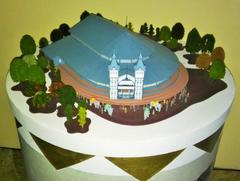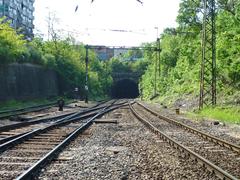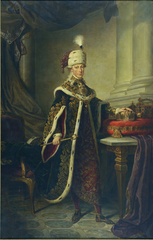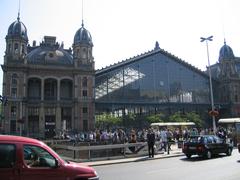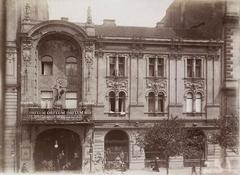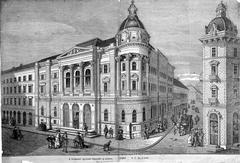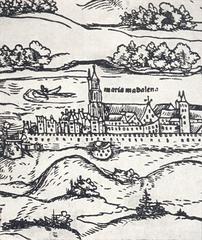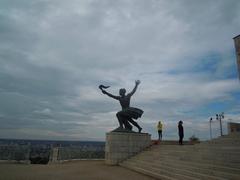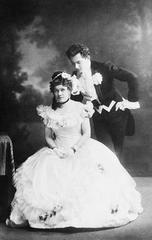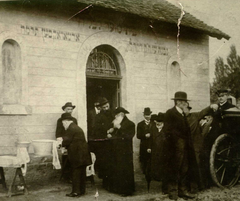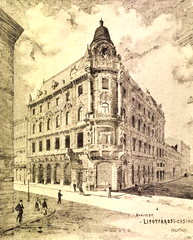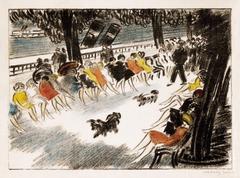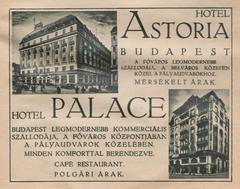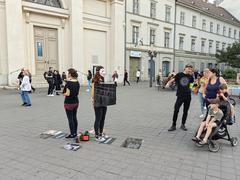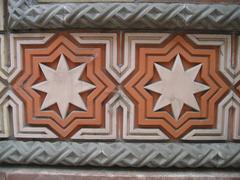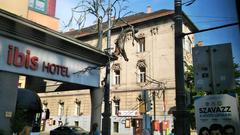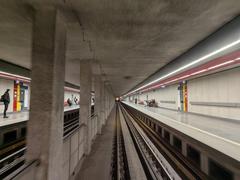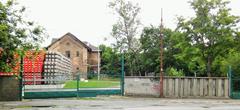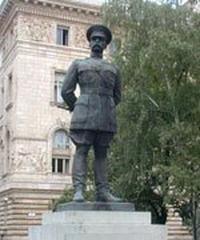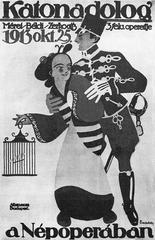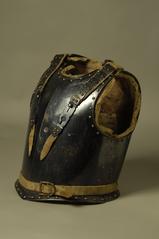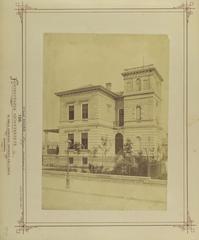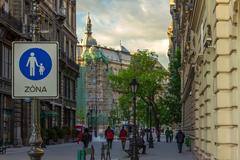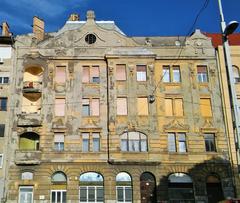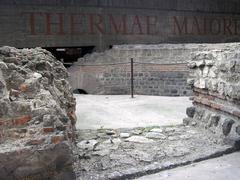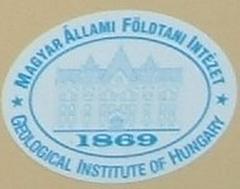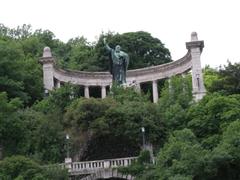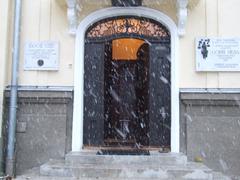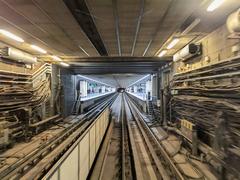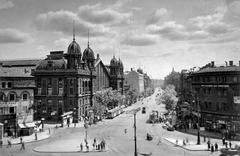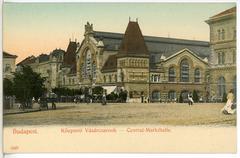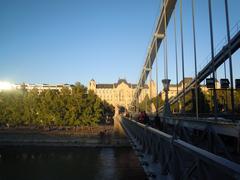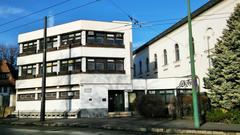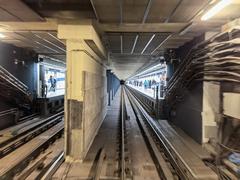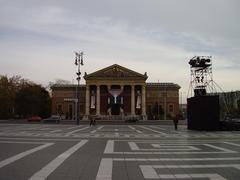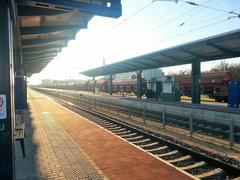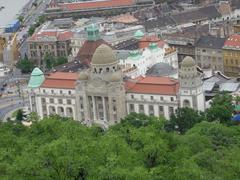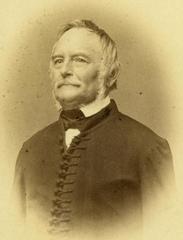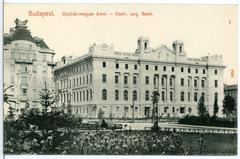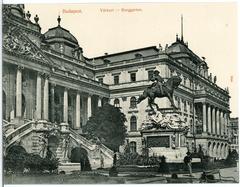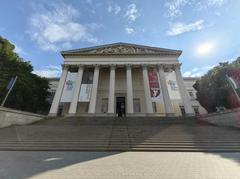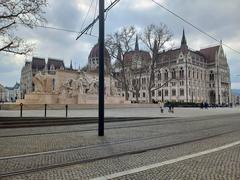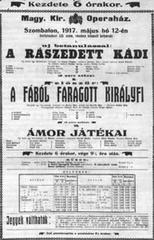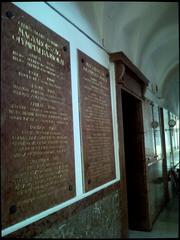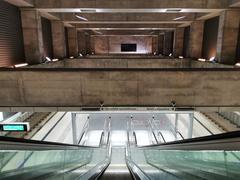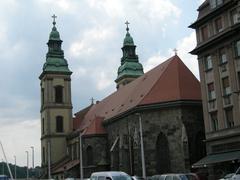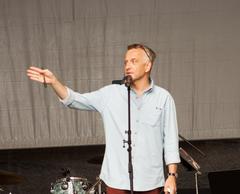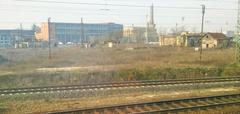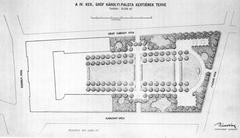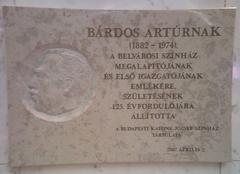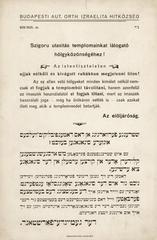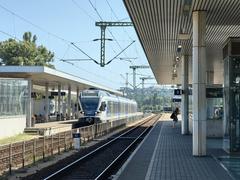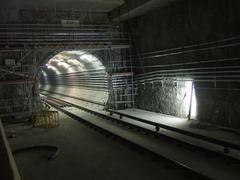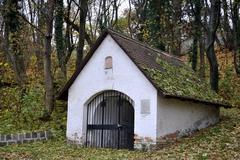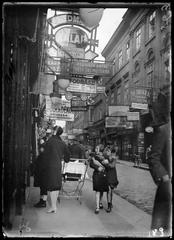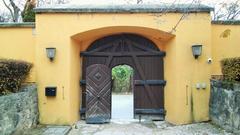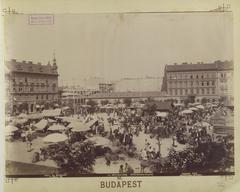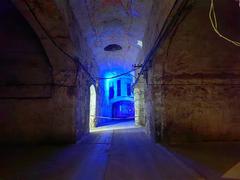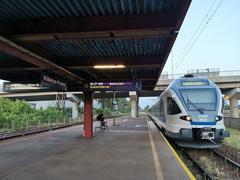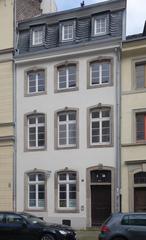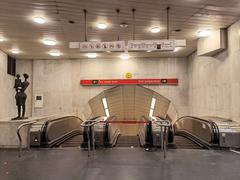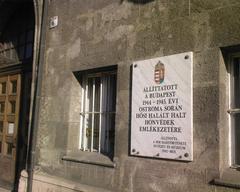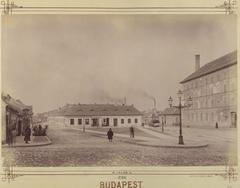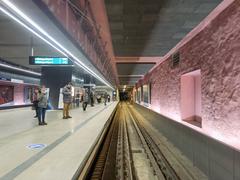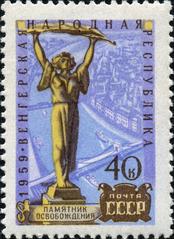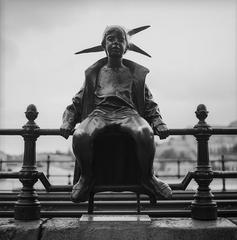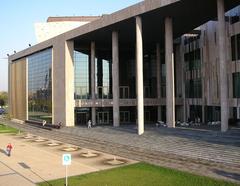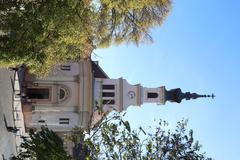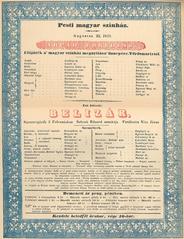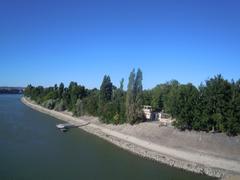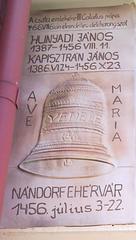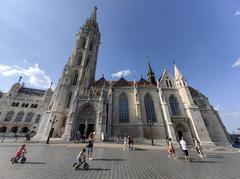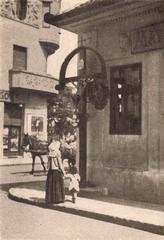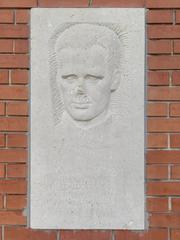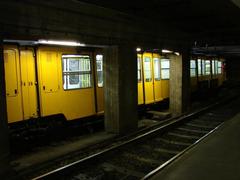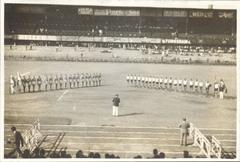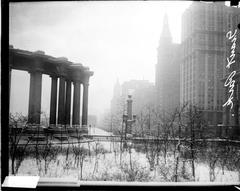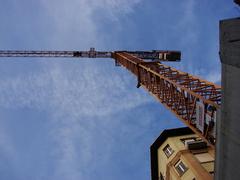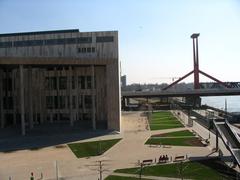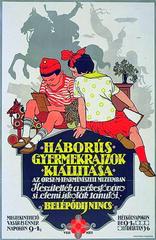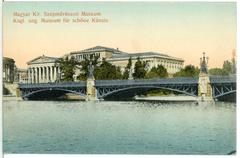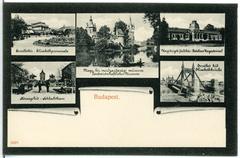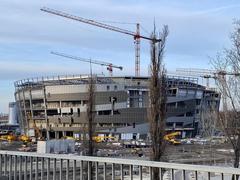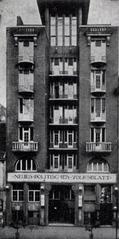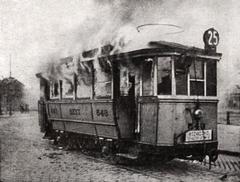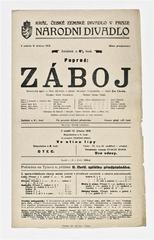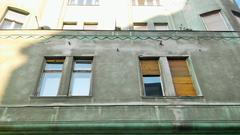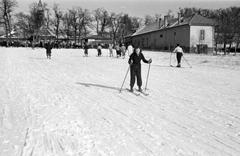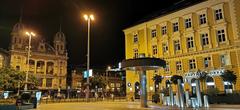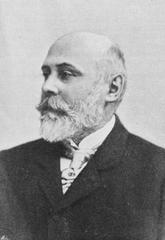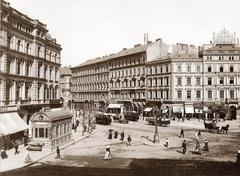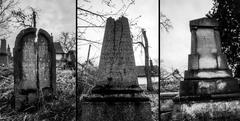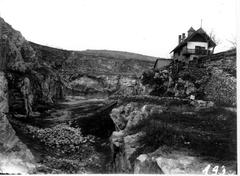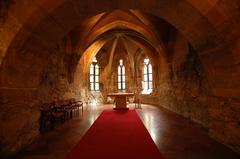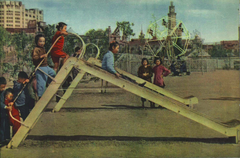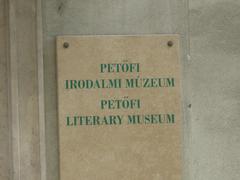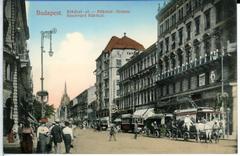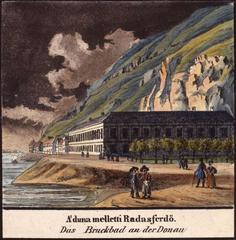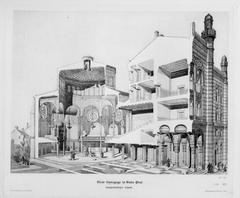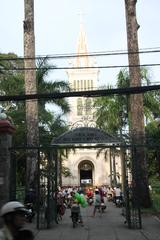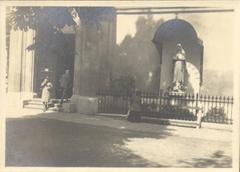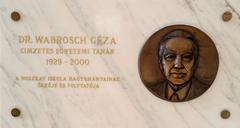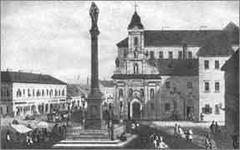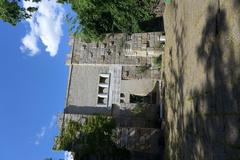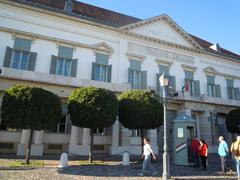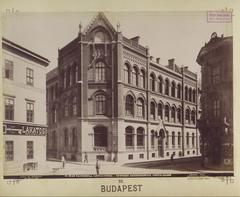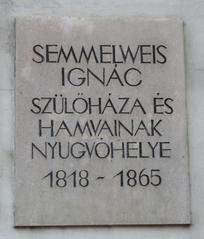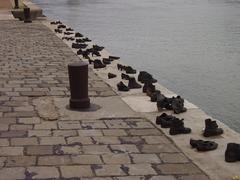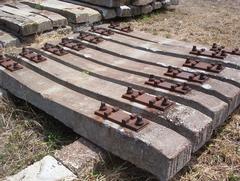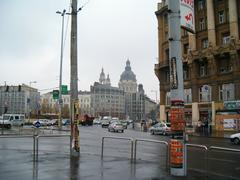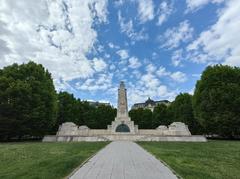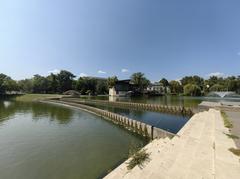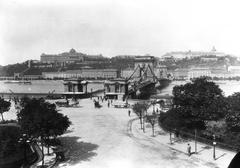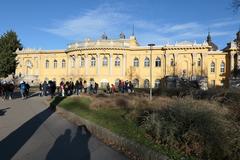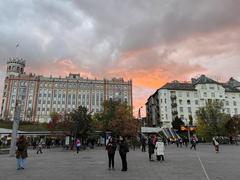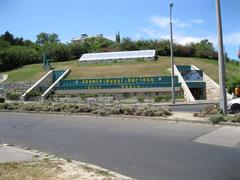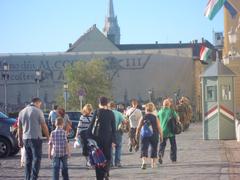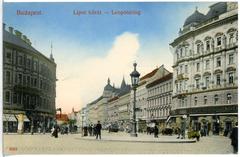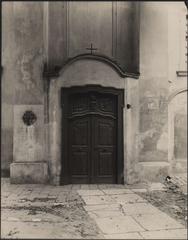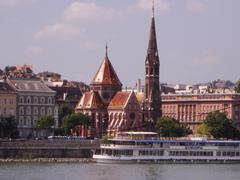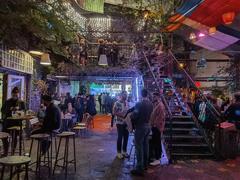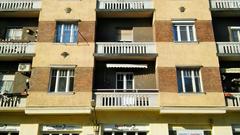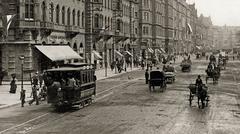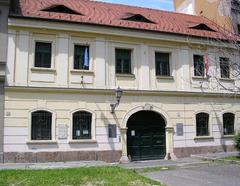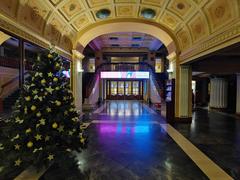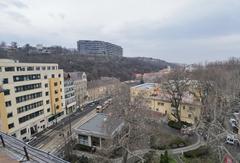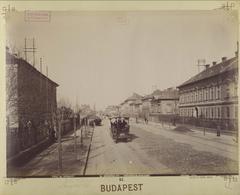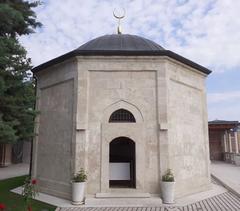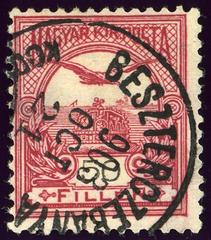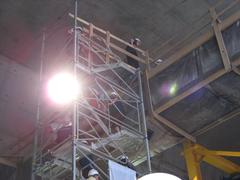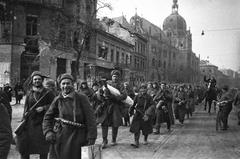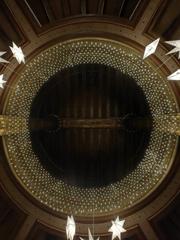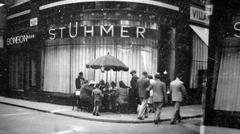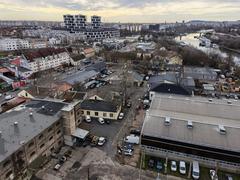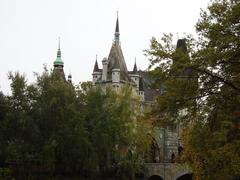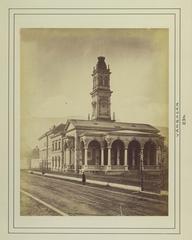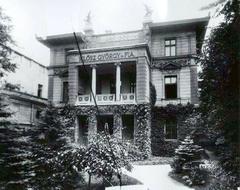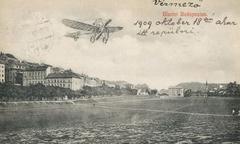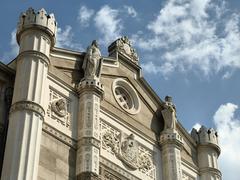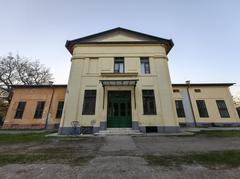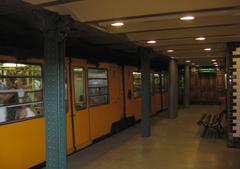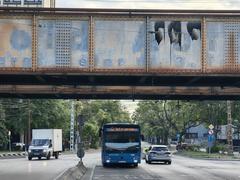Korányi Sándor Utca: Visiting Hours, Tickets, and Attractions in Budapest
Date: 04/07/2025
Introduction
Korányi Sándor Utca, set in Budapest’s historic 8th district (Józsefváros), is a unique destination that harmoniously combines Hungary’s medical legacy, architectural heritage, and vibrant urban culture. Named after Baron Sándor Korányi, a pioneering physician in internal medicine and nephrology, this street is a living tribute to scientific achievement and academic tradition. Anchored by the esteemed Semmelweis University clinics and flanked by celebrated landmarks like the ELTE Füvészkert (Budapest’s oldest botanical garden) and the Hungarian Natural History Museum, Korányi Sándor Utca offers visitors an immersive experience where history, education, and leisure intersect. With excellent public transport connections (Metro line M3, tram No. 24) and accessible facilities, it welcomes all visitors—whether your interest is in medical history, botanical wonders, or Budapest’s ever-evolving cityscape. This guide delivers comprehensive information to help you make the most of your visit. (Semmelweis University History, Füvészkert Botanical Garden, Hungarian Natural History Museum, Moovit Budapest Transit Guide)
Table of Contents
- Introduction
- The Origins and Naming of Korányi Sándor Utca
- Sándor Korányi: Life and Legacy
- Practical Visitor Information
- Medical Heritage and the Budapest Medical Quarter
- Key Attractions and Experiences
- Architectural and Urban Context
- The Ongoing Legacy of the Korányi Family
- Frequently Asked Questions (FAQ)
- Conclusion
- Plan Your Visit and Stay Connected
The Origins and Naming of Korányi Sándor Utca
Korányi Sándor Utca takes its name from Baron Sándor Korányi (1866–1944), a pivotal figure in Hungarian medicine renowned for his advances in internal medicine and nephrology. He introduced the BCG vaccine to Hungary and served as a professor at Semmelweis University (Semmelweis University). The street’s name reflects Budapest’s tradition of honoring its eminent scientists, particularly those who have contributed to its renowned medical institutions.
Sándor Korányi: Life and Legacy
Born in Pest, Sándor Korányi was the son of Frigyes Korányi, Sr., another prominent medical educator. Sándor’s research on kidney diseases earned him thirteen Nobel Prize nominations (Wikipedia). As a respected member of the Hungarian Academy of Sciences, his contributions to public health and medical education remain influential to this day.
Practical Visitor Information
- Street Access: Korányi Sándor Utca is a public street and can be accessed year-round at any time.
- Medical Institutions: The Semmelweis University clinics, such as the Department of Internal Medicine and Oncology, are typically open to patients and staff on weekdays from 8:00 AM to 6:00 PM. Educational tours may be available upon request; contact the institutions in advance for arrangements.
- Tickets: No tickets are required to walk the street. Entry to specific events or clinics may require registration or appointment.
- Guided Tours: Semmelweis University occasionally offers guided tours focusing on medical history. Check the university’s website for schedules.
- Accessibility: The street and major institutions are wheelchair accessible. Nearby public transport includes Metro line M3 (Semmelweis Klinikák and Nagyvárad tér stations), tram No. 24, and several bus lines.
- Parking: Paid street parking is available but limited; public transport is recommended (Bakony Museum).
Medical Heritage and the Budapest Medical Quarter
Korányi Sándor Utca is at the heart of Budapest’s medical district, home to the “Korányi Clinic”—a center for top-tier patient care, research, and education (Semmelweis Belonko). This area not only serves as a hub for internal medicine and oncology but also symbolizes Budapest’s enduring commitment to scientific progress.
Key Attractions and Experiences
Semmelweis University Internal Medicine Clinic
- Address: Korányi Sándor utca 2A
- Function: Leading medical education and research center, with occasional public events and academic conferences. No regular public tours; check the university’s website for special events.
- Accessibility: Wheelchair accessible.

ELTE Füvészkert (Botanical Garden)
- Address: Illés utca 25
- Opening Hours: Tuesday–Sunday, 9:00 AM–6:00 PM (March–October); 10:00 AM–4:00 PM (November–February). Closed on Mondays and public holidays.
- Tickets: Adults 1,000 HUF; Students/Seniors 500 HUF; Children under 6 free. Available onsite or online (Füvészkert).
- Features: Over 8,000 plant species, a historic palm house, and literary significance as a setting in “The Paul Street Boys.”
- Accessibility: Wheelchair-friendly pathways.

Fitoland Kertészet
- Address: Korányi Sándor utca 2c
- Opening Hours: Mon–Fri 9:00 AM–6:00 PM; Sat 9:00 AM–2:00 PM; Closed Sundays.
- Admission: Free
- Features: Urban gardening center offering plants, tools, workshops, and community events (Fitoland Kertészet).
- Accessibility: Wheelchair accessible.

Other Local Experiences
- Szakállas Medve Bistro: Enjoy traditional Hungarian and Transylvanian cuisine at Korányi Sándor utca 2/c (Szakállas Medve).
- Füvészkert tér: A pedestrian-friendly square opening in 2025, part of the street’s ongoing urban renewal (Józsefváros Újság).
- Hungarian Natural History Museum: Exhibits on natural sciences, a short walk away (Hungarian Natural History Museum).
Architectural and Urban Context
Korányi Sándor Utca is characterized by late 19th and early 20th-century buildings in neoclassical and eclectic styles, interspersed with modern educational and medical facilities. The street’s ongoing transformation, particularly around the Füvészkert, aims to enhance public space, greenery, and pedestrian access, making it a model of urban renewal in Józsefváros (Józsefváros Újság).
The Ongoing Legacy of the Korányi Family
The Korányi family’s contributions to Hungarian medicine transcend generations. Their dedication to science, education, and public health continues to inspire medical professionals and scholars (MyHeritage).
Frequently Asked Questions (FAQ)
Q: Is there an entrance fee for Korányi Sándor Utca?
A: No, the street is public and free to visit. Some attractions, like the Füvészkert, require tickets.
Q: What are the best times to visit?
A: Weekdays during the day are lively, especially when clinics and the university are active. Spring and autumn offer pleasant weather for outdoor exploration.
Q: Can I visit the Semmelweis University clinics as a tourist?
A: Clinics are primarily for patients and staff. Public events or guided tours are offered occasionally—check the university’s website for updates.
Q: Are guided tours available?
A: Yes, but only periodically and mainly through Semmelweis University or during special events.
Q: Is the area wheelchair accessible?
A: Yes, most institutions and public areas are accessible.
Q: How do I get there using public transport?
A: Use Metro line M3 (Semmelweis Klinikák or Nagyvárad tér stations), tram No. 24, or local buses. (Moovit Budapest Transit Guide)
Q: Where can I park?
A: Regulated, paid parking is available but limited. Public transport is recommended.
Conclusion
Korányi Sándor Utca stands as a vibrant corridor where Budapest’s medical, academic, and cultural heritages converge. With its prestigious clinics, botanical garden, accessible urban design, and ongoing revitalization, the street offers a rich, multifaceted experience for all visitors. Whether you are a history enthusiast, a science lover, or simply seeking a picturesque stroll through Budapest’s past and present, Korányi Sándor Utca is a destination not to miss.
Plan Your Visit and Stay Connected
- Travel smart: Use apps like Moovit for real-time public transport info.
- Stay updated: Follow Semmelweis University and Füvészkert websites for event schedules.
- Enhance your experience: Download the Audiala app for guided audio tours and local updates.
Explore more:
- Semmelweis University History
- Belgyógyászati és Onkológiai Klinika
- Budapest Monuments and Attractions
- Füvészkert Botanical Garden
- Moovit Budapest Transit Guide
- Hungarian Natural History Museum
- Józsefváros Újság – Urban Renewal
- Fitoland Kertészet
- Szakállas Medve Bistro
